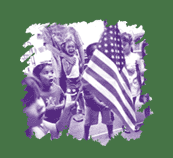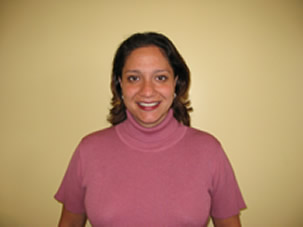









| > | E-Newsletter Archive | |
Mailman School
of Public Health
Columbia University
722 West 168th Street,
8th Floor
New York, NY 10032

|
|
 |
|
Elena Trueworthy, Community Development Coordinator at Human Resources Agency of New Britain, Connecticut The Effects of Leadership Development in Urban Communities  Who: Elena Trueworthy, Community Development Coordinator at Human Resources Agency of FTG: Why is building leadership important in the work that your organization does? Elena: Building leadership is necessary to build community. A community needs people who know how to identify the issues in their community and take them to action. It needs people who can do the research and know what steps to take in order to be successful in their communities. If you want your community and family strengthening work to sustain itself beyond staff or even an agency, then you need to have leaders who will take the work on for themselves and train others to carry it forward. If you don't develop leaders in the community, then the work falls to staff. When that staff changes, the work goes with them and is not sustained in the community. FTG: What changes have you seen in the community as a result of building leadership? Elena: The biggest change we have seen has been in our residents. They are much more willing to talk about the strength of their community and as a result, there is much more awareness about the North Oak neighborhood in FTG: How does leadership development help families and communities? Elena: When you develop a person's leadership abilities, the results can be seen in all aspects of their life and if you look, you can see the integration between family and community strengthening. Leadership does not only mean being able to participate in community meetings. A person who develops skills to become a leader in the community will use those same skills at home to manage family life. Similarly, the skills needed to take care of issues at home can later be applied to community issues. That is one of the main ideas of Free To Grow – that a community supports families, families build the community and together these forces raise healthy kids who can be tomorrow's leaders. FTG: What are the particular challenges in building leadership? Elena: It is very important to be patient. Leadership does not develop overnight. You need to take time to determine each person's strength and develop strengths in the individual as well as the group. FTG: What have been the benefits/successes of building leadership for the community and for your organization? Elena: We now have a new community center as a direct result of the leadership that was developed in our community. As an agency, we also see a lot more resident involvement – not just with FTG, but in all community groups. Also, success follows success, so as residents see the changes that are taking place, it sparks more interest and leads other residents to become involved. FTG: What steps do you take to assure continuity of leadership in your community? Elena: Leadership building is a continuous process of motivation and coaching. We have continual outreach and recruitment to get new people involved. Then we work with them, even if they seem less likely to be leaders, to identify and develop potential leaders. We will always have turnover for various reasons so it is always important to get new people involved in community efforts. FTG: How has Head Start played a role in building leadership? Elena: Head Start is a great resource for leadership candidates. Head Start already has structures in place that encourage parents to learn some of the skills necessary to become leaders. Adding Free To Grow to these structures gives us another platform to develop solid leadership skills. FTG: What has been the role of your partners? Elena: Our partners play a significant role in leadership development by providing an excellent arena for residents to practice their leadership skills. Each of our partners operates on a different level so they have unique perspectives on issues and policy. This affords our residents a multitude of avenues for action and leadership that would not be possible through a single agency. FTG: What advice do you have for other communities seeking to build leadership? Elena: Other communities should put a big emphasis on building leadership in parents and residents, because it is the foundation of any positive community change. Sometimes it may seem as if the process is slow and difficult, but stick with it. The benefits will certainly outweigh the time and challenges you may encounter. For more information, you can contact Elena Trueworthy by email at etrueworthy@hranbct.org.
|
|
Disclaimer Free To Grow is a national program supported by the Robert Wood Johnson Foundation and the Doris Duke Charitable Foundation with direction and technical assistance provided by the Mailman School of Public Health of Columbia University. |